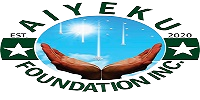Cultivating the Legacy of Critical Thinking: Exploring the Impact of the Aiyeku
Foundation Scholarship for Emerging Leaders
Boyo Hellen Arinke
Ambrose Alli University
Faculty of Basic Medical Science
Department of Nursing Science
500L
6th of August, 2024
Introduction
Developing critical thinking skills is vital to moving society in a more just and equitable direction, and scholarships play a key role in nurturing those skills in promising students who will pay it forward. I’d aim to demonstrate critical analysis by discussing Cicero’s ideas and their modern relevance.
Cicero’s categorizations
According to the chart presenting Marcus Cicero’s wisdom from 43 BC, Cicero categorized different societal roles and how they each exploit or take advantage of others:
- The Poor – Work & Work
- The Rich – Exploit The Poor
- The Soldier – Protects Both
- The Tax Payer – Pays For All Three
- The Banker – Robs All Four
- The Lawyer – Misleads All Five
- The Doctor – Bills All Six
- The Goons – Scare All Of Seven
- The Politician – Lives Happily On Account Of All Eight
These categorizations reveal Cicero’s perspective on the power structures and inequalities present in ancient Roman society, which still have relevance today.
The poor are at the bottom, doing the labor that powers society. The rich sit above them, exploiting their work. The tax payer funds the soldier that protects the interests of both the rich and poor.
Then there are the bankers, lawyers and doctors – professions that Cicero sees as exploiting and taking advantage of those below them on the social hierarchy through financial schemes, dishonest practices, and overcharging for essential services.
Above them all sit the “goons” who use fear and intimidation to maintain control and the politicians who live lavishly off the backs of everyone else.
Cicero paints a picture of a steeply stratified society, where those in power enrich themselves at the expense of the masses below them. Each rung exploits those on the lower rungs.
His categorizations suggest that rising above one’s station was difficult, as the power structures were designed to keep people in their place. The poor were trapped by their lack of means. The rich and powerful used their positions to maintain status and wealth.
This reflects the rigid social hierarchies of ancient Rome, with the patrician noble classes and the plebeian commoners. But Cicero’s observations still have striking parallels to the power imbalances, inequality, and classism present in societies throughout history and today.
The chart provides a thought-provoking framework to critically examine how hierarchies of power and money create disparities in opportunity, exploitation of the less privileged, and unfair societal structures. While overly simplistic, Cicero’s musings raise important questions about inequality and injustice that continue to persist.
How lack of opportunity can limit individuals’ potential to better their circumstances
Cicero’s astute observations about societal hierarchies highlight how lack of opportunity can severely limit individuals’ potential to better their circumstances and rise above their station in life. In Cicero’s framework, the poor are consigned to a life of endless toil, working tirelessly just to subsist. The rich exploit their labor, using their power and privilege to keep the poor trapped in a cycle of poverty.
This stark dichotomy illustrates how socioeconomic status and lack of access to resources can constrain people’s ability to improve their lot in life. When you’re born into poverty, breaking free of it is an uphill battle.
Without financial means, it’s difficult to access quality education and develop the knowledge and skills needed to secure higher paying jobs and build wealth. Poverty often means living in underserved communities with underfunded schools, fewer enrichment opportunities, and limited professional networks and role models.
The chronic stress of poverty also takes a mental and physical toll, further disadvantaging the poor as they strive to get ahead. Lack of nutrition, healthcare, stable housing and other essential resources to thrive put them at an even greater disadvantage relative to their privileged peers. Cicero’s categories show how these initial disparities can calcify into entrenched social classes over time. The rich and powerful are incentivized to maintain the status quo that benefits them. They use their influence in politics, business, and institutions to perpetuate systems and policies that consolidate their power, makinclass mobility even more difficult.
The poor then are not only deprived of material necessities and opportunities, but also the social and cultural capital that the rich take for granted. They have limited access to the relationships and insider knowledge that open doors and fast-track success. Poverty becomes a trap that’s exceedingly difficult to escape
This is not to say it’s impossible for motivated and talented individuals to overcome their circumstances through hard work and determination. History provides inspiring examples of people rising from poverty to the heights of achievement.
But Cicero’s observations underscore just how much the deck is stacked against the poor and how lack of opportunity puts them at a severe disadvantage. Increasing access to education, resources and social capital is essential to empower people to develop their talents and better their circumstances.
Equitable access to opportunity is key to a society where people can rise based on merit rather than inherited privilege. Reducing barriers and creating pathways for social mobility allows people to fulfill their potential and make the most of their abilities. When people from all walks of life can participate and contribute, society as a whole benefits.
The importance of education in empowering people
Education plays important role in empowering individuals to think critically, see beyond simplistic categorizations like those in Cicero’s framework, and work to improve society.
While Cicero’s observations provide a thought-provoking starting point to examine inequality, education allows us to develop the critical thinking skills needed to interrogate and complicate such stark dichotomies. With education, we learn to ask probing questions, examine issues from multiple angles, and resist accepting generalizations at face value.
Through exposure to diverse perspectives and ideas, education broadens our horizons and challenges us to reconsider our assumptions. We learn about the complex socioeconomic, historical and political factors that shape societal hierarchies and power structures. This deeper understanding is essential to dismantle oversimplified “us vs. them” mentalities that pit groups against each other.
Education nurtures the creativity and ingenuity to imagine alternatives to the status quo. It spurs us to envision a society with more equitable structures and opportunities for all. An informed, critically-engaged populace is more likely to advocate for policies and practices that level the playing field and invest in the potential of every individual.
In addition to these societal benefits, education is also a powerful tool for personal empowerment and transformation. It opens doors to higher-paying jobs and career advancement, enabling individuals to build financial stability and rise above their circumstances. The knowledge, skills and credentials gained through education can help offset the disadvantages of coming from an underprivileged background.
Perhaps most importantly, education has the potential to be a great equalizer, meritocratic allocating opportunity based on ability rather than wealth or social class. While access to quality education is not yet truly equal, working towards that ideal can help create a society where anyone with drive and talent can succeed.
Expanding access to education allows people from all backgrounds to examine societal structures with a critical eye, participate meaningfully in democracy, and steer society in a more equitable direction. Its value in nurturing the changemakers of tomorrow cannot be overstated.
How philanthropic scholarships create positive change in the community
Philanthropic scholarships like those provided by the Aiyeku Foundation play a key role in opening doors and empowering recipients with the tools they need to create positive change in their communities.
For students from disadvantaged backgrounds, scholarships can be life-changing. They provide access to educational opportunities that would otherwise be out of reach due to financial constraints. By removing the burden of tuition costs, scholarships allow students to focus on their studies and personal growth rather than worrying about making ends meet.
Scholarships offer far more than just financial support. They also provide recipients with a wealth of resources and experiences that prepare them to become effective leaders and changemakers.
Most importantly, scholarships give students the tools to turn their ideas for social change into reality. With the knowledge and skills gained through their education, recipients are equipped to critically analyze problems, develop innovative solutions, and advocate for progress. They emerge ready to tackle the complex challenges facing their communities and make a meaningful impact. We see the ripple effects of philanthropic scholarships in the countless stories of recipients going on to become leaders in their fields and communities. From doctors providing healthcare in underserved areas, to entrepreneurs creating jobs and driving economic growth, to activists fighting for social justice, scholarship alumni are at the forefront of positive change.
For funders like Dr. Iyiola Aiyeku and Chief Mrs. Janet Aiyeku, scholarships are a high-impact way to invest in a brighter future. Each scholarship represents a vote of confidence in a student’s potential and a commitment to nurturing the next generation of leaders. It’s a powerful reminder that when we bet on people’s talents and dreams, the returns for society are immeasurable.
How Aiyeku Foundation Scholarship support my academic journey
As a recipient of the Aiyeku Foundation scholarship, I, Boyo Hellen, see this opportunity as a pivotal moment in my journey to become a leader and critical thinker who can make a meaningful difference in my community and beyond.
Growing up in a low-income household, I’ve witnessed firsthand the limitations that lack of access to quality education can place on one’s potential. Despite facing financial struggles, my family has always emphasized the value of learning and instilled in me a fierce curiosity about the world. Receiving the Aiyeku Foundation scholarship has been a truly life-changing to me. With the financial burden of tuition lifted, I am able to fully dedicate myself to my studies and personal growth at Ambrose Alli University, Department of Nursing Science.
Through my chosen course of study in Nursing, I hope to develop a deep understanding of the social and scientific issues shaping our world and the critical thinking skills to tackle them. I’m particularly passionate about Health issues and eager to explore innovative solutions through my research and coursework.
I am humbled and inspired by Dr. Iyiola Aiyeku and Chief Mrs. Janet Aiyeku commitment to leveling the playing field and students to reach their full potential. Their generosity and vision are a powerful reminder that when we invest in individuals’ talents and dreams, the returns for our collective future are immeasurable.
Through your philanthropic efforts, you are opening doors of opportunity for countless students like myself who have the drive and potential to succeed but face significant financial barriers to higher education. Your scholarships are not just funding degrees, but investing in dreams and empowering the next generation of leaders to make a positive difference in the world.
I am using this medium to say a very big thank you to the Aiyeku Foundation for this opportunity given to me. Thank you for your bold vision of a world where every student can thrive. And thank you for your immeasurable impact on my life and the lives of countless others.
In conclusion, the Aiyeku Foundation scholarship program is a powerful testament to the transformative potential of investing in education and human potential. By providing access to opportunities and resources that nurture critical thinking, leadership, and social responsibility, the Foundation is empowering a new generation of changemakers poised to make a meaningful difference in their communities and beyond.


Your thesis statement is clear and well-supported